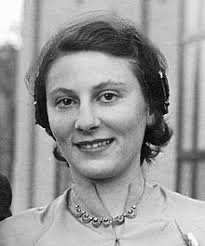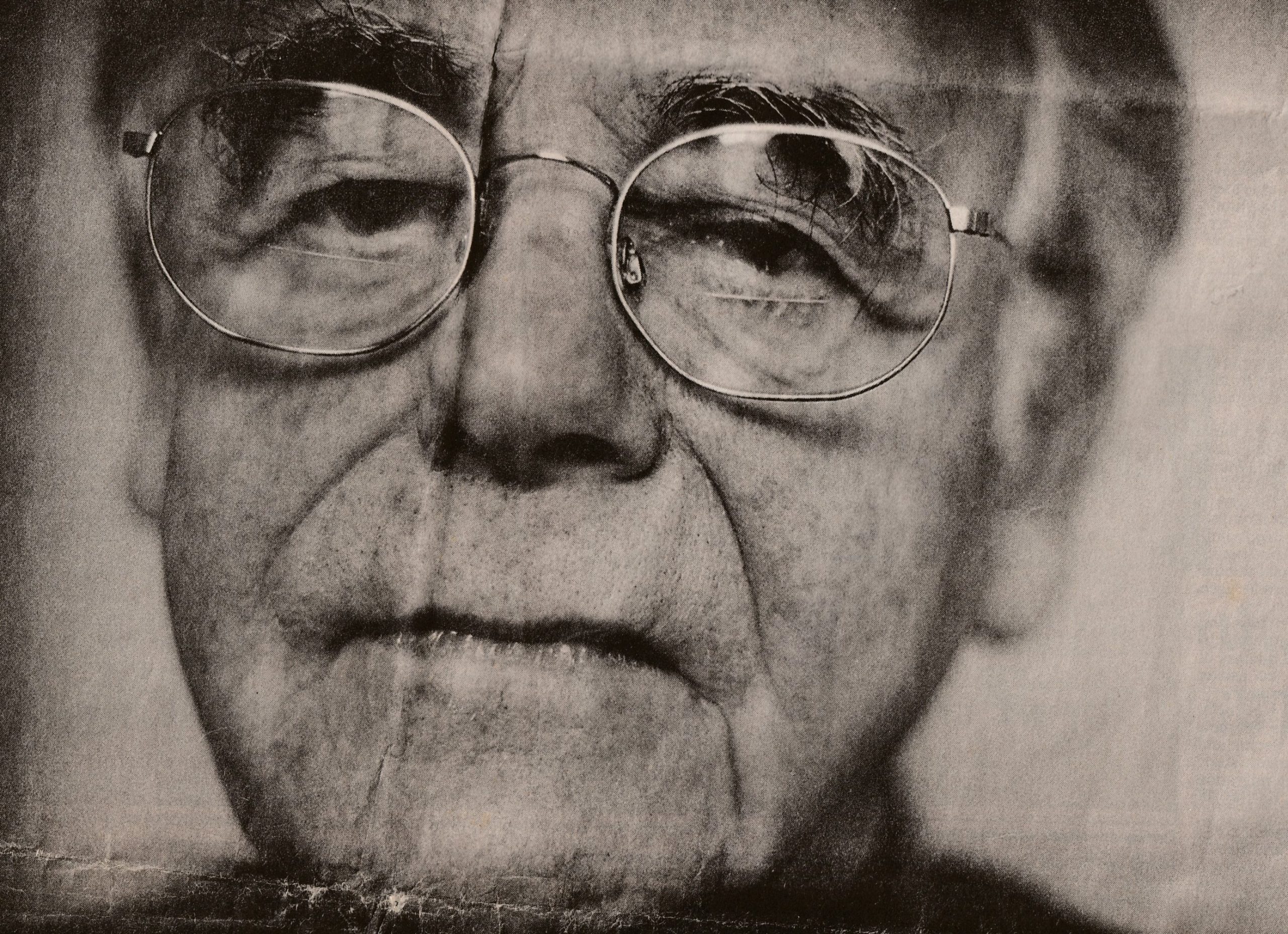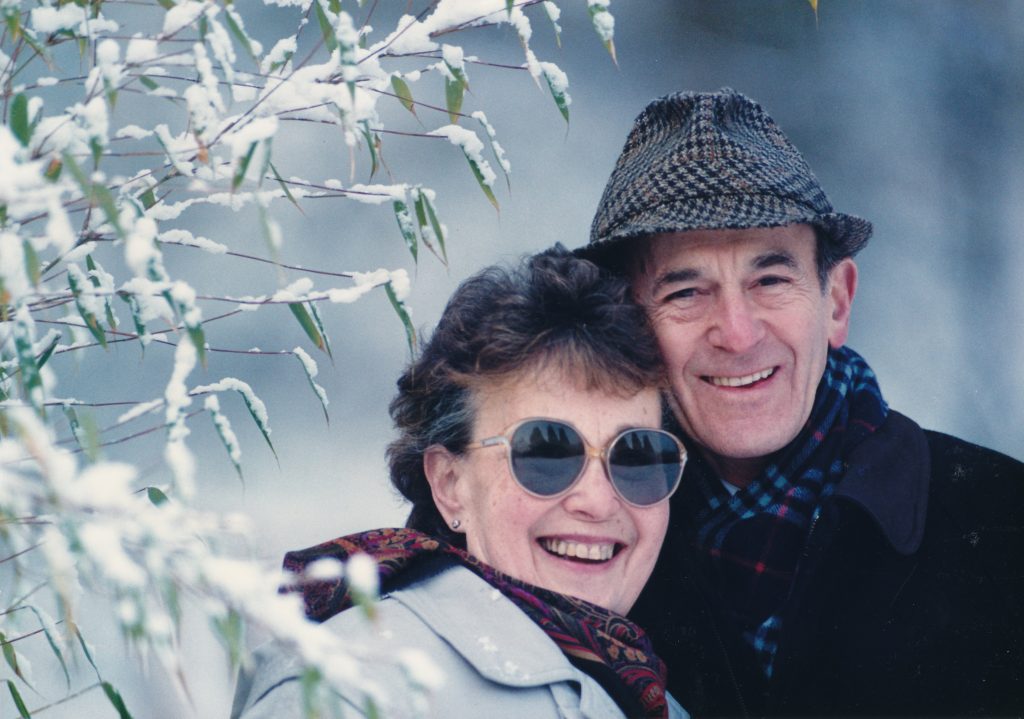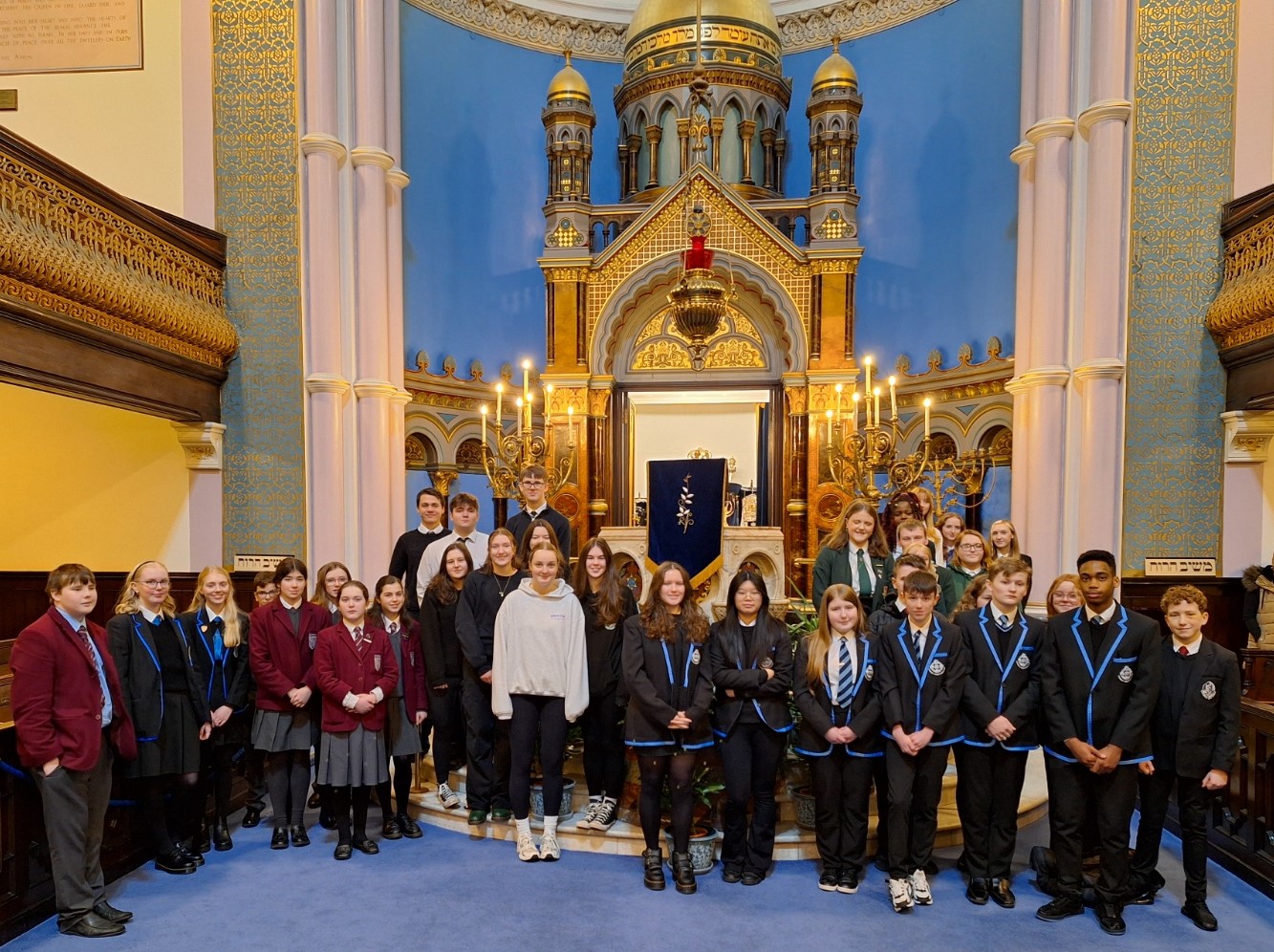*This event is now fully booked*
The Scottish Jewish Heritage Centre is excited to announce that we will be hosting a special event for secondary school pupils in January 2025, in the lead up to Holocaust Memorial Day. The theme for Holocaust Memorial Day 2025 is “For a Better Future”. This Holocaust Memorial Day marks the 80th anniversary of the liberation of Auschwitz-Birkenau, the largest Nazi concentration camp complex as well as the 30th anniversary of the genocide in Bosnia. You can find out more about this year’s theme here.
For this event, we are honoured to be hosting speakers whose parents were survivors of the Holocaust, and who made a life in Scotland. As many of those who experienced the horrors of the Holocaust first-hand are no longer with us, we now look to the second generation to continue sharing their stories. This will be a special opportunity for pupils to hear these stories as told by those closest to the survivors. Together we can learn both from and about the Holocaust and take action towards a better future. The pupils will have the opportunity to ask questions, and will be able to share what they have learned with their fellow pupils back at school for Holocaust Memorial Day.
The event will take place on Wednesday 22nd January 2025. The programme for the day is as follows:
- 10.00-11.30: A tour of the synagogue, ‘Scotland a Sanctuary’ exhibition and a chance to view original archival material from the Scottish Jewish Archives Centre.
- 11.30-12.00: Break with refreshments provided.
- 12.00-1.30: Three second generation speakers, with time for questions.
Speakers
Geraldine Shenkin
“My mum Marianne Grant (nee Hermann) was born in Prague, The Czech Republic in 1921. She was supposed to go to go to art school in Jerusalem but being an only child didn’t want to leave her mum. In 1942 they were sent away by the Nazis and survived various concentration camps. While in Auschwitz, her bravery and artistic talent saved her life. At the end of the war both mum and grandma left Bergen Belson concentration camp and began a new life in Sweden. Six years later Marianne met my dad, married, and settled in Glasgow, bringing up her family until her death in 2007.”
Right: Photograph of Marianne Grant.


Philip Rodney
“My Dad was born Wolfgang Rimalower in Leipzig in 1919. His parents, Febus and Marie had been brought to Germany from Russia and Poland by their own parents. Febus served in the German army in the Great War and with Marie built up a successful business in the textile trade and property. When Hitler came to power, my father’s parents, like their Jewish friends were frightened, but believed that democracy would soon be restored. However, as the 1930s progressed, the Nazi persecution got worse.
Left: Photograph of Wolfgang Rimalower
In my dad’s words,
“It must have been around 1934 or 1935 that I remember my parents trying to make the house safe at night – which is when the Nazis came. My father fixed steel bars in front of the doors and fastened them with heavy locks. The whole idea was that it would give us more time to call the police when the SS or the Gestapo arrived.”
In September 1938, my dad was involved in a car accident. In a state of shock got into an argument with the police who arrived at the scene. He went home and told his father who was concerned that my dad would be deported as a result. It was decided that my father would go to an aunt in Switzerland that night.
“A suitcase was packed and my parents took me to the station. It was September 13 1938. I didn’t know it at the time, but that was the last time I saw my parents.”
In 1990, after the Berlin Wall fell, I went to Leipzig with my cousin. I remember standing on a platform at the station and the eerie feeling trying to imagine what it felt like to him and his parents saying that final goodbye.”
Judy Russell
“Ernest Levy O.B.E. was my step father but the only father I really knew. He was born in Bratislava, the youngest of a large Orthodox Jewish family. He spent most of the war years in Budapest, Hungary, from where he was deported to Auschwitz in 1944. Fortunately he was chosen to work and spent the next year in work camps and eventually in 1945 was liberated from Bergen Belsen.
He returned to Hungary but emigrated to the UK in the 60s where he married and work as a Cantor. In Glasgow. He wrote two book about his war experiences and spoke to many groups in his latter years. I now retell his story.”
Right: Photograph of Kathy & Ernest Levy

We hope that you will be able to join us for this special event. We can accommodate up to 8 pupils per school, and the price of a ticket is £10 per pupil. Acceptance of a Travel Bursary Application is guaranteed for this event, which you can apply for here.
If you would like to book a place for your pupils, please get in touch at schools@sjhc.org.uk to let us know how many pupils and teachers will be attending.
We look forward to seeing you there!

